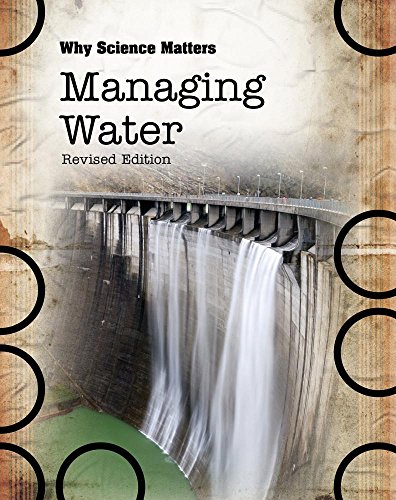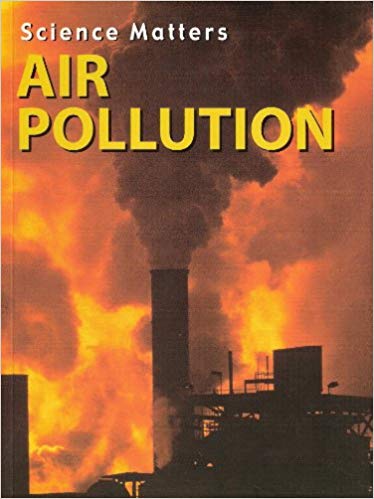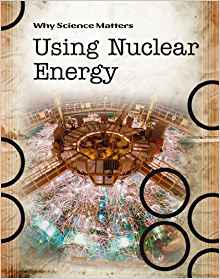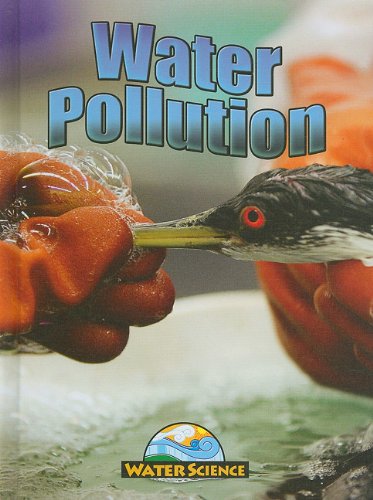-
Kitchen Science Experiments: How Does Your Mold Garden Grow?
Sudipta Bardhan-Quallen, Edward Miller
Hardcover (Sterling, Nov. 2, 2010)What do a glass of milk, a sponge in the sink, and a refrigerator have in common? THEY'RE ALIVE with bacteria, mold, and kitchen chemistry possibilities. The kitchen is a perfect place for budding mad scientists” to experiment. Kids 9 to 12 will have a blast using yeast to inflate balloons; making a fish mummy; growing a mold garden; and removing an eggshell with kitchen science experiments! Every topic features sidebars, illustrations, photographs, and extension activities. P
P
-
Science Masters Earth’s Energy Flow
Clara MacCarald
Hardcover (Connections, Aug. 11, 2019)Energy flows all around you. It warms the air and powers our machines. In this book, readers in grades 4-9 will discover how power from the sun journeys to Earth’s surface and back out to space. The sun’s energy can be reflected, absorbed, used by plants and animals, given off, or trapped to warm the atmosphere. Learn how heat in the atmosphere is rising and what people can do about it. Earth’s energy flow affects every living creature on the planet―including you!This series features a variety of science topics aligned to NGSS standards. From mixing matter to the study of sound waves, each informative book includes a glossary, comprehension questions, and an activity for home or the classroom. W
W
-
Managing Water
Richard Spilsbury
Paperback (Heinemann, Aug. 15, 2016)How much freshwater is there on Earth? Can science help us use water more efficiently? The 'Why Science Matters' series demonstrates how the science we learn at school is important in every aspect of our everyday lives. Using case studies and investigations, the series describes the development of science and technologies that can improve our lives – or lead to new scientific challenges and controversies. In 'Managing and Using Water', we find out about the most vital resource on Earth and how it shapes our landscape. We learn the importance of water as a solvent, how the power of flowing water can be harnessed to provide us with energy, how drinking water is cleaned and sewage treated, and new technologies to combat water shortages around the world. X
X
-
Harnessing the Sun's Energy
Andrew Solway
Paperback (Heinemann, Sept. 27, 2008)Why is the Sun vital to life on Earth? How does the Sun affect our weather and ocean currents? Can science solve the problems of fossil fuel shortages and climate change? The 'Why Science Matters' series demonstrates how the science we learn at school is important in every aspect of our everyday lives. Using case studies and investigations, the series describes the development of science and technologies that can improve our lives – or lead to new scientific challenges and controversies. In 'Harnessing the Sun’s Energy', we find out how the enormous power of the Sun can be used to meet the world’s growing energy needs. We find out about the significance of energy transfers and the role of sunlight in food chains and webs, and examples of new technologies that can provide us with environmentally-sound energy.
-
Understanding Health and Behavior
Ann Fullick
Paperback (Heinemann, Nov. 7, 2008)Why are we influenced by advertising? How much does nurture determine behavior? What is imprinting? The 'Why Science Matters' series demonstrates how the science we learn at school is important in every aspect of our everyday lives. Using case studies and investigations, the series describes the development of science and technologies that can improve our lives – or lead to new scientific challenges and controversies. In 'Understanding Health & Behavior', we look at how animals have clear patterns of behavior, such as reacting to hunger and their response to meeting other animals. We find out how investigating behavior can take place in the laboratory or a natural environment, and the role of both nature and nurture in animal and human development. And we learn how our diet, exercise, and drugs can affect the way we behave.
-
Air Pollution
Heather C. Hudak
Paperback (Weigl Educational Publishers Limited, )None
-
Understanding Health and Behavior
Ann Fullick
Library Binding (Heinemann, Nov. 7, 2008)Why are we influenced by advertising? How much does nurture determine behavior? What is imprinting? The 'Why Science Matters' series demonstrates how the science we learn at school is important in every aspect of our everyday lives. Using case studies and investigations, the series describes the development of science and technologies that can improve our lives – or lead to new scientific challenges and controversies. In 'Understanding Health & Behavior', we look at how animals have clear patterns of behavior, such as reacting to hunger and their response to meeting other animals. We find out how investigating behavior can take place in the laboratory or a natural environment, and the role of both nature and nurture in animal and human development. And we learn how our diet, exercise, and drugs can affect the way we behave.
-
Using Nuclear Energy
John Townsend
Paperback (Heinemann Library, Feb. 15, 2010)In "Using Nuclear Energy", we find out how scientists discovered nuclear power, what happens if you split an atom, and about the immense blast a nuclear weapon can create. We learn about fission, chain reactions, and how the science of the deadly Hiroshim
-
Water Pollution
Melanie Ostopowich
Library Binding (Av2 by Weigl, July 15, 2010)Describes the various causes of water pollution, its negative effects on animals, and why it continues to spread. V
V
-
Designing Greener Vehicles and Buildings
Andrew Solway
Library Binding (Heinemann, Sept. 27, 2008)Why do we need greener buildings? What is a carbon footprint? How can computer-aided design help reduce our energy use? The 'Why Science Matters' series demonstrates how the science we learn at school is important in every aspect of our everyday lives. Using case studies and investigations, the series describes the development of science and technologies that can improve our lives – or lead to new scientific challenges and controversies. 'Designing Greener Vehicles and Buildings' investigates how our transport systems and buildings affect the environment. We find out about energy transfers, the importance of renewable building resources and energy sources, and the science behind solar panels and hybrid fuel cars. And we learn about the cutting-edge innovations in architecture and vehicle design that will help us to reduce our energy.
-
Predicting Earthquakes
John Farndon
Paperback (Heinemann, Sept. 27, 2008)Farndon, John T
T
-
Predicting Earthquakes
John Farndon
Library Binding (Heinemann, Sept. 27, 2008)How do seismic waves travel through rock? How can satellites help with earthquake prediction? The 'Why Science Matters' series demonstrates how the science we learn at school is important in every aspect of our everyday lives. Using case studies and investigations, the series describes the development of science and technologies that can improve our lives – or lead to new scientific challenges and controversies. In 'Predicting Earthquakes', we learn about the structure of Earth and how earthquakes happen. We find out about faults and epicenters, the science behind seismographs, and the role of earthquakes in causing tsunamis. We also find out about the challenging tasks of anticipating movements in Earth’s crust. Y
Y